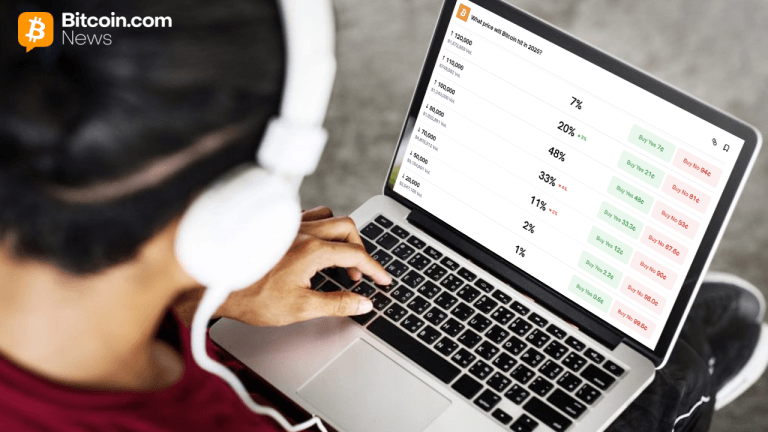As Financial Surveillance Intensified In 2022, Bitcoin Is Needed By Individuals And Nations Alike
4 min read
This is an opinion editorial by Kudzai Kutukwa, a financial inclusion advocate who was recognized by Fast Company magazine as one of South Africa’s top-20 young entrepreneurs under 30.“Every record has been destroyed or falsified, every book rewritten, every picture has been repainted, every statue and street building has been renamed, and every date has been altered. And the process is continuing day by day and minute by minute. History has stopped. Nothing exists except an endless present in which the Party is always right.”
–George Orwell, “1984”
At the outbreak of the first world war, Great Britain had the world’s most sophisticated undersea telegraph cable system, which wrapped around the entire world. On August 5, 1914, a day after the British had declared war on the Germans, a British ship, the Alert, set sail from the port of Dover with a mission of cutting off all of Germany’s communications with the world by sabotaging the Germans’ undersea cables and the mission was accomplished successfully.
A day before the Alert set sail, on August 4, a man was deployed to the cable station at Porthcurno in Cornwall and the cables carrying traffic across the Atlantic came ashore on the beach. The job title of this man was “censor” and numerous other censors were deployed across the empire, from Hong Kong to Malta to Singapore. Once the censors were in position, a worldwide system of intercepting communications known as “censorship” was born. Its main aim was to prevent the communication of strategic intelligence between the enemy and their agents. In other words, the goal had evolved from just crippling the Germans’ ability to communicate, to also gathering intelligence.
Over 50,000 messages per day were handled by the network of 180 censors at U.K. offices. By leveraging their dominance over the international telegraph infrastructure, the British created the first global communications surveillance system that stretched from Cape Town to Cairo and from Gibraltar to Zanzibar. This became one of the choke points that led to the defeat of the Germans.
While the phenomenon of censorship is by no means a new one, as highlighted by the historical account above, the fact still stands that it’s a weapon that has been deployed throughout history to silence opposing views, cripple independent thought and ultimately subjugate “enemies of the state” or entire nations.
2022 was in many ways what I would personally call the year of the “censor.” As I look back and reflect on 2022, it seems to me that incidents of censorship are now the rule and not the exception thanks to the rise of cancel culture on social media and various independent media voices offering diverse views on controversial topics that, in some cases, contradict the “official narrative.” Honest and open debate is stifled when these views get censored, resulting in further polarization.
Furthermore the convergence of digital platforms and banking has led to the rise of another, more dangerous and pervasive form of censorship: financial censorship. This is a more malicious form of censorship that isn’t just about hindering or intercepting communications, but is characterized by cutting off one’s access to basic financial services, restricting who one can trade with and hindering the ability to transact freely. This includes but isn’t limited to shutting down the bank accounts of political opponents, being blacklisted and deplatformed by payment processors and economic sanctions. What started out as a tool to stop criminals and other bad actors from financing their nefarious activities has now morphed into a weapon for silencing critics, oppressing dissenters and harassing whistleblowers, as well as indirectly controlling the spending habits of people.
Given Bitcoin’s censorship resistance, it too was also subjected to numerous attacks in this past year as the censors clearly understand that it’s an alternative monetary system that they cannot stop, control or influence.
In a world where the definitions of what constitutes “acceptable speech or appropriate behavior” are constantly moving targets, who knows when you may end up having your bank accounts frozen for having a different perspective or for something you posted on social media ten years ago? Will independent thought result in financial retaliation? In this essay I will highlight a few of the key incidents of financial censorship that occurred in 2022 which were basically free Bitcoin marketing campaigns, and more importantly, discuss how Bitcoin is the perfect shield going forward.The Freedom Convoy“The greatest danger to the State is independent intellectual criticism.”
–Murray N. Rothbard
The increased levels of collusion between the State, bankers and big tech against individuals and organizations that hold legal but dissenting views is perhaps the most obfuscated and dangerous form of financial censorship.
The Freedom Convoy protests that kicked off on January 22 by Canadian truckers who were protesting against COVID-19 vaccine mandates clearly demonstrated how third-party payment platforms and banks can collude with the State to financially cut off individuals without due process. Through the crowdfunding site GoFundMe the truckers managed to raise approximately $7.9 million in donations. GoFundMe then withheld and later refunded the donations to the donors citing a violation of their terms of service against the promotion of violence.
Not long after that, Prime Minister Trudeau invoked the Emergencies Act, which allowed the government to freeze the bank accounts, suspend insurance policies and withhold other financial services from the protestors and their donors.
During a<a







